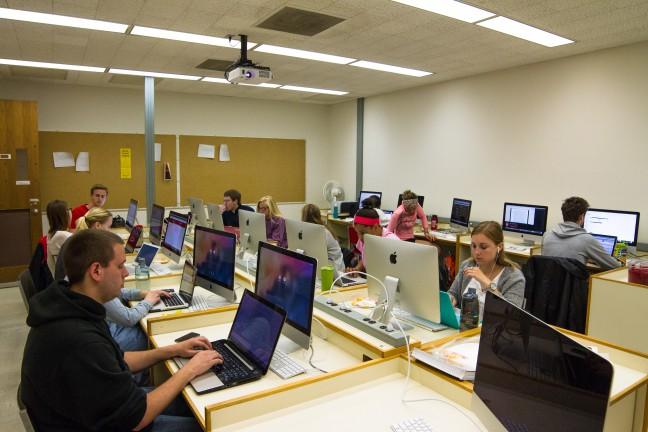Polo Rocha has written a great column about the J-school. I may have a few quibbles here and there, but it is a fair, well-researched and thought provoking piece of reporting. He could have written a seat-of-the-pants list of reasons the J-school pissed him off. Instead, Rocha dug deep — he talked to students and faculty, consulted employers and sought out alumni now working in the field. Then he wrote a nuanced analysis of the situation supported with solid evidence.
None of that is at all surprising, of course, given Rocha is a product of the J-school. In fact, we in the J-school would like to take just a tiny bit of the credit for Rocha’s work. He was trained in a department that emphasizes a curriculum integrating the professional practice of journalism and strategic communication, and packages it all in a liberal arts envelope. We could just teach students the intricacies of Photoshop or Tableau, but that is not the J-school way.
Our founder, Willard Bleyer, taught us the future of democracy is dependent upon the character of its newspapers. We’re not that print-centric today, but we know that instruction in law, ethics, media effects, history and so on is vital for any well-rounded, professional communicator. I think Rocha’s column is a great reflection of what he learned in the J-school (and at The Badger Herald, I’m sure), and we are proud of that.
But also, the column challenged us, and we recognize the J-school has work to do on several fronts. It’s true some students are not fully served when it comes to emerging media. But I think the issue is less about specific technologies and more about being nimble enough to adapt to the new media environment and advance the ways journalism education is delivered at UW.
The constantly evolving media landscape has not always been adequately reflected in some of our courses. But recently, the J-school has begun to offer courses on social media and news, data visualization, long-form and short-form digital video, digital media practices and others that Rocha probably would have loved to take.
Meeting the challenges of the new media environment led us in 2000 to launch what many considered a groundbreaking curriculum. That curriculum had a central vision: adaptability. We knew that any technology we trained students to use would be outdated by the time they graduated. So we focused more on instilling the mindset and work ethic to sense emerging opportunities and learn to use them. That’s what J202 is all about.
For me, the beauty of Rocha’s column is that it so well reflects the skills introduced in J202 and developed in advanced courses. Yes, it’s true, we need to rethink J202 and other courses now for a variety of reasons, but we’ll never lose the emphasis on fundamentals like careful gathering and distilling of evidence and compelling storytelling, which is evident in Rocha’s column.
The current curriculum revision will continue to focus on those basic building-block skills, but will also require students to take an introductory course that revolves around important new skills that professional communicators must have. In the new curriculum, students will learn about data analysis and visualization, design and use of databases and sophisticated multi-platform communication. Intermediate and advanced courses will build on these skills and help students produce, we hope, highly developed content.
Finally, I couldn’t agree with Rocha more when he encouraged students to get the most out of UW and the J-school. Faculty and staff are working diligently to help prepare J-schoolers for the communication jobs of tomorrow and it’s always great to hear from students about their experience.
Professor Hemant Shah is the director of University of Wisconsin’s journalism school.


